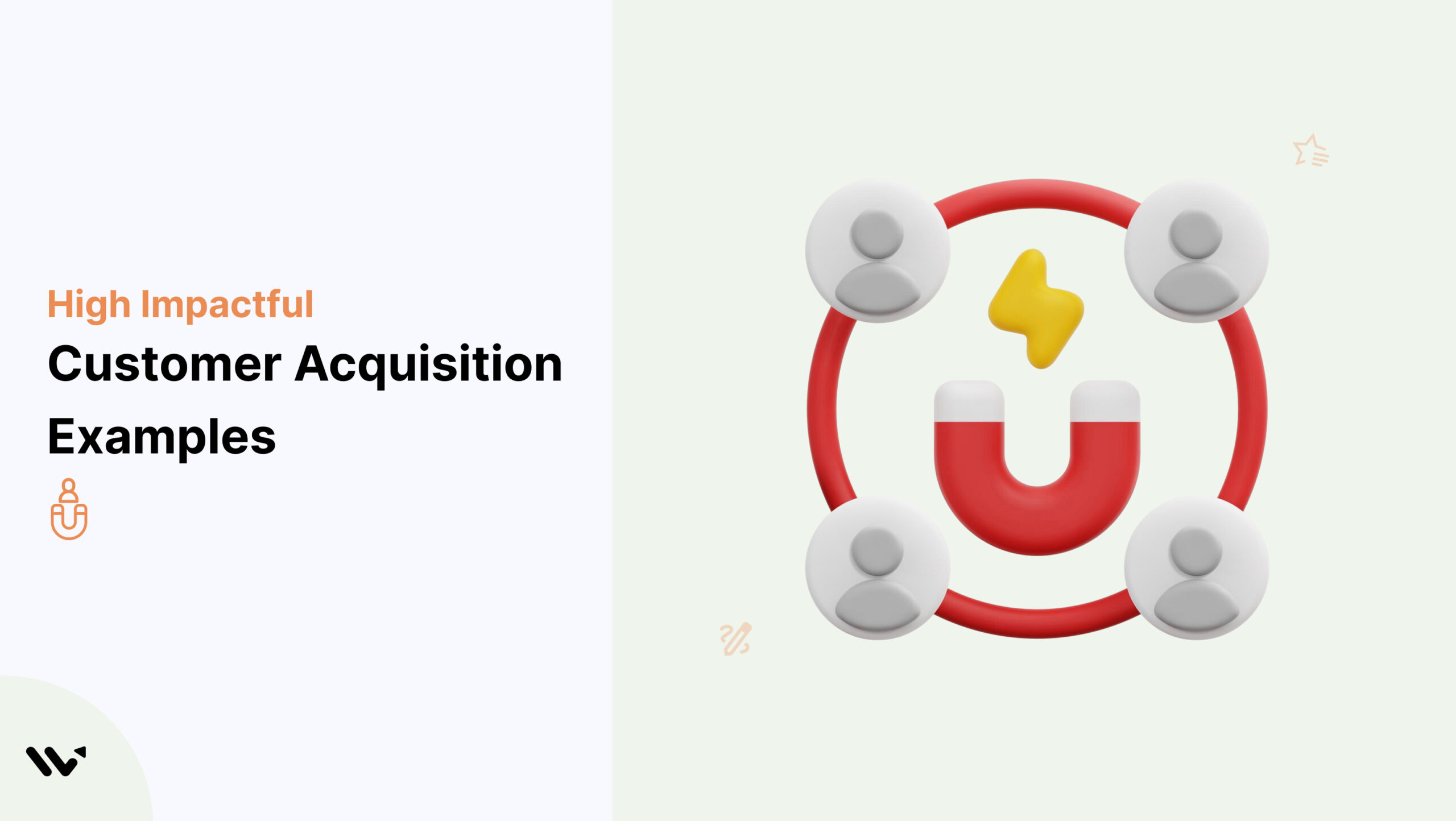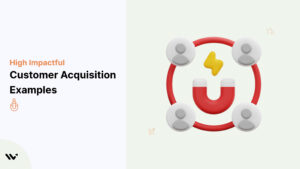Every business wants more customers — but getting them? That’s the tricky part. There are tons of ways to go about it, and not all of them work.
The best way to figure out what might work for you is to look at what’s already working for others. That’s what this post is about.
We’ve pulled together 15 real examples of how different companies have brought in new customers. Some of these are simple ideas that cost nothing.
Others are bigger plays with serious impact. Either way, they’re all things you can learn from, tweak, or try for yourself.
Let’s get into it.
10 Winning Customer Acquisition Examples That Work
Looking for real ways to bring in more customers? These 10 customer acquisition examples actually work—because they’re based on strategies that real brands use successfully.
From referral programs that get people talking to smart social media campaigns and creative partnerships, each example shows a different way to attract and win over new customers.
Here are examples:
1. ASOS

ASOS knows its audience—young, fashion-forward shoppers—and plays directly to that. One of its smartest acquisition strategies is offering a 10% student discount year-round.
It’s a simple tactic that builds early brand loyalty and keeps price-sensitive buyers coming back.
Why it works:
- Students are price-sensitive but trend-driven—perfect for fashion.
- Early brand exposure = lifetime value.
- The discount feels exclusive, not generic.
Key takeaway: Target a niche audience with tailored incentives—it builds trust, increases conversions, and gives you a clear edge over generic marketing.
2. Casper

Casper made waves in the crowded mattress market by turning its customers into marketers. Their referral program was simple: give a friend $75 off, get $75 back. This incentive-driven word-of-mouth strategy not only rewarded loyal buyers but also fueled organic growth — fast.
Beyond referrals, Casper invested in clever brand storytelling, subway ads, and podcast sponsorships to stay top-of-mind.
But it was their seamless online buying experience combined with a generous 100-night trial that converted curious browsers into lifelong customers.
Key takeaway: Make it ridiculously easy — and rewarding — for your customers to share your brand.
3. Sephora

Sephora nails customer acquisition by combining smart personalization with an irresistible loyalty program.
Their Beauty Insider program rewards customers for purchases, reviews, and referrals — turning everyday shoppers into repeat buyers and brand promoters.
What really sets Sephora apart is how they use data-driven personalization. From tailored product recommendations to location-based offers and early access perks, every touchpoint feels customized.
This not only attracts new customers but also keeps them engaged long-term.
Key takeaway: Create a loyalty experience that feels exclusive, not generic — and use personalization to make first-time buyers feel like VIPs.
4. Lululemon
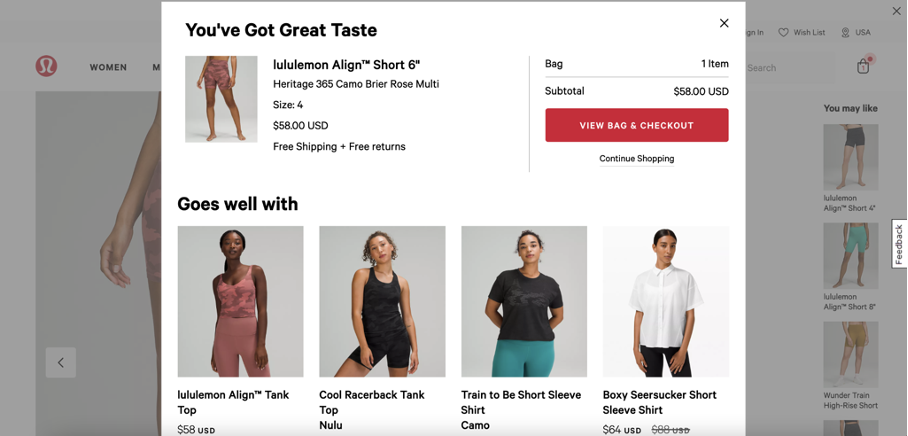
Lululemon’s customer acquisition strategy goes beyond ads — it builds a lifestyle. One of their smartest moves? Community-based marketing.
They host in-store yoga classes, sponsor local fitness events and partner with micro-influencers who embody their brand.
By creating real-world experiences and authentic connections, Lululemon turns first-time shoppers into loyal advocates. This emotional buy-in makes word-of-mouth one of their strongest acquisition channels — and it doesn’t rely on discounting.
Key Takeaway: Build a community around your product. People follow people, not logos.
5. Eloqua

Eloqua, Oracle’s marketing automation platform, excels at B2B customer acquisition through highly targeted email nurture campaigns.
Instead of pushing for immediate conversions, Eloqua builds long-term value by guiding leads through personalized content journeys based on behavior and interests.
Their strategy focuses on:
- Segmenting leads by industry, role, and engagement level
- Automating email sequences that match each buyer’s stage
- Scoring leads to prioritize sales outreach effectively
Why it works: Eloqua doesn’t just generate leads — it qualifies and warms them up before sales steps in. This reduces acquisition costs and improves conversion rates in complex B2B sales cycles.
6. Amazon

Amazon doesn’t just sell products — it builds habits. One of its most powerful customer acquisition plays is Amazon Prime.
By offering fast shipping, exclusive deals, and access to content (Prime Video, Music, etc.), Amazon turns a one-time buyer into a long-term member.
Why it works:
- Prime shifts the mindset from “occasional shopper” to “default shopping destination.”
- The free trial hooks users, and the convenience keeps them.
- Amazon bundles value across multiple categories, making it hard to justify going elsewhere.
Key takeaway: Create an ecosystem where customers get ongoing value — not just a one-time deal. Subscription perks and speed win attention and loyalty.
Build trust & FOMO
Highlight real-time activities like reviews, sales & sign-ups.
7. Pardot
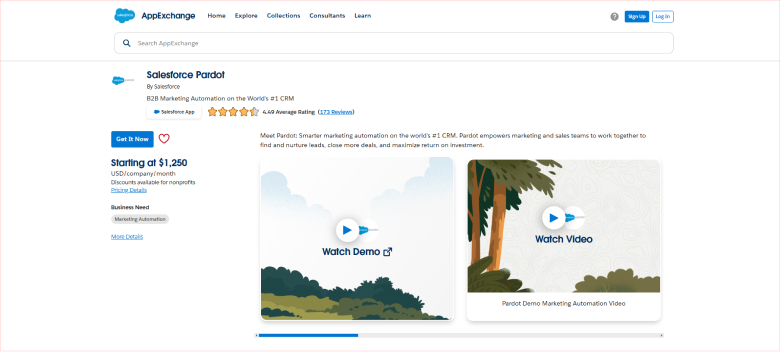
Pardot, Salesforce’s B2B marketing automation platform, excels at acquiring customers by focusing on lead nurturing rather than cold outreach.
Their strategy centers on delivering the right content at the right stage of the funnel — turning curious leads into ready-to-buy prospects.
They use behavior tracking, dynamic email campaigns, and personalized landing pages to guide users through a seamless journey. Instead of pushing for a sale too soon, Pardot builds trust through education and consistent follow-up.
Key takeaway: Focus on nurturing leads with tailored content over time. Educated prospects convert better — and stay longer.
8. Harry’s

Harry’s, the men’s grooming brand, nailed customer acquisition before even launching. They built a pre-launch referral program that offered early access and rewards for people who shared the brand with friends.
By giving users unique referral links and tiered incentives (like free products), Harry’s collected over 100,000 emails in just one week — all before selling a single razor.
Why it worked:
- Clear, simple incentives
- Shareable landing page
- Built-in virality and urgency
Key Takeaway: Turn your early fans into marketers with a low-friction referral system. It’s cheap, scalable, and high-trust.
9. Glossier
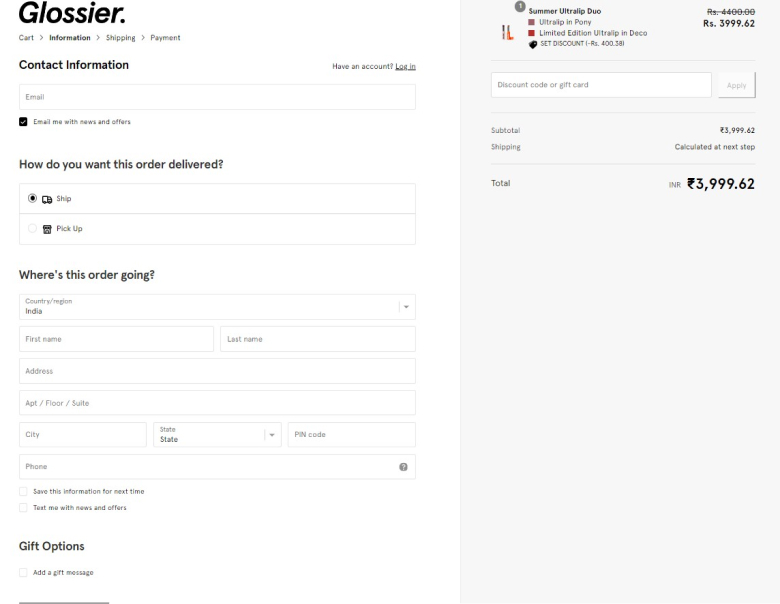
Glossier mastered customer acquisition by making its buyers part of the brand. From day one, they focused on building a community over running traditional ads.
They encouraged everyday users to share their skincare routines and makeup looks on social media — tagging Glossier in the process.
Instead of hiring influencers, Glossier turned customers into advocates by reposting their content, commenting, and even featuring them on the official site. This built massive organic reach and a sense of authenticity that paid off.
Why it works:
- UGC fuels trust and visibility
- The community-first approach creates loyalty
- Low-cost acquisition through peer influence
Key Takeaway: People trust people — not polished ads. If you make your customers feel like insiders, they’ll become your most powerful marketers.
10. Zappos

Zappos didn’t just sell shoes — they sold a customer experience. Their acquisition strategy was simple but powerful: turn every interaction into a marketing moment.
Instead of spending heavily on ads, Zappos invested in exceptional customer support, free shipping (both ways), and a 365-day return policy.
The result? Word-of-mouth took over. Happy customers became brand advocates, driving new business organically. Their service was so good, people talked about it — and that talk turned into traffic, trust, and conversions.
Key Takeaway: Sometimes, the best acquisition strategy isn’t ads or hacks — it’s the company people love to talk about.
Conclusion
A successful customer acquisition strategy isn’t one-size-fits-all — but the examples above show how different businesses attract potential customers using the right customer acquisition channels and tactics.
Whether it’s paid advertising, referral programs, or content marketing, what matters is knowing your target audience and choosing acquisition methods that lower your customer acquisition cost and bring in high-quality, paying customers.
As you build or adjust your customer acquisition funnel, focus on more than just bringing in new customers. Look at the full customer journey — from awareness to loyalty.
Track performance metrics, optimize your marketing efforts, and don’t forget to consider customer lifetime value. Loyal customers are often more valuable than the cheapest ones to acquire.
The right customer acquisition strategy supports long-term business growth. Start small, test what works, and keep iterating based on real data and customer experience.
